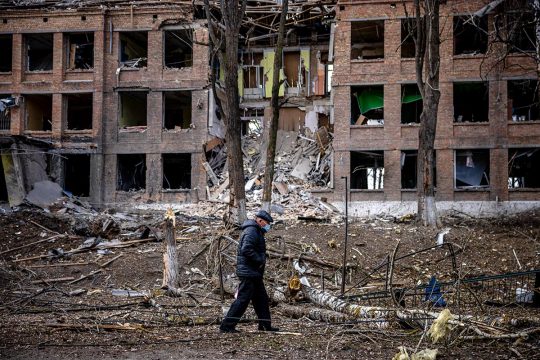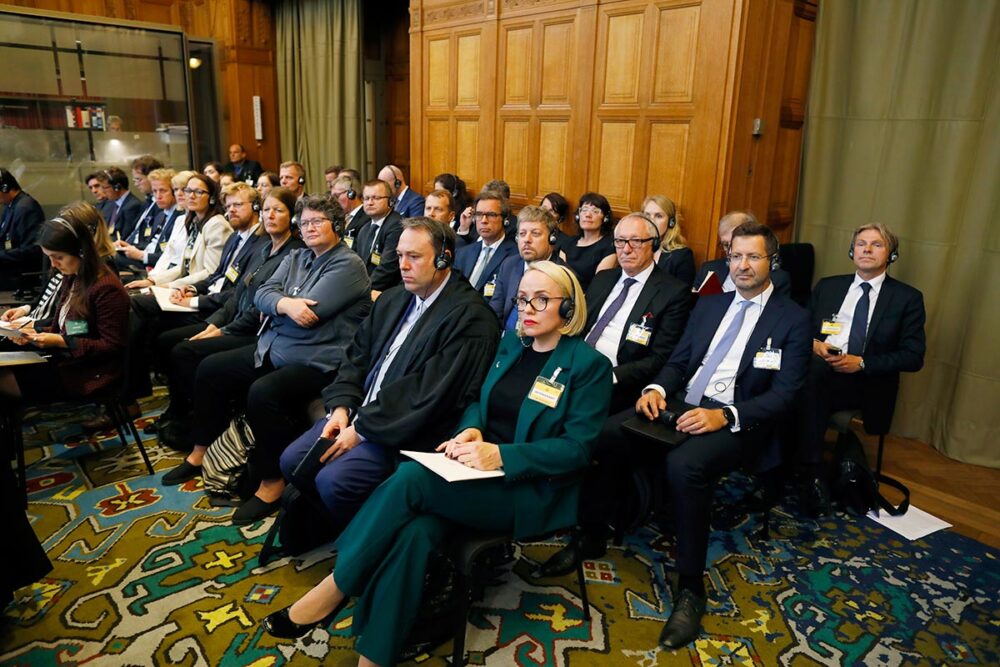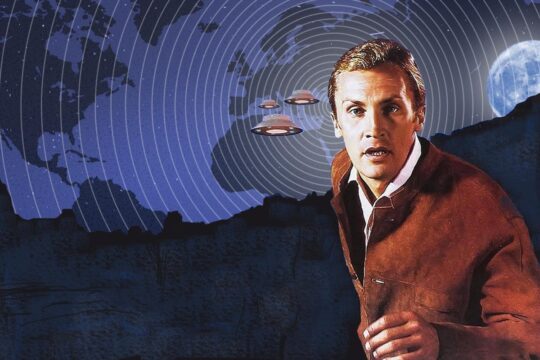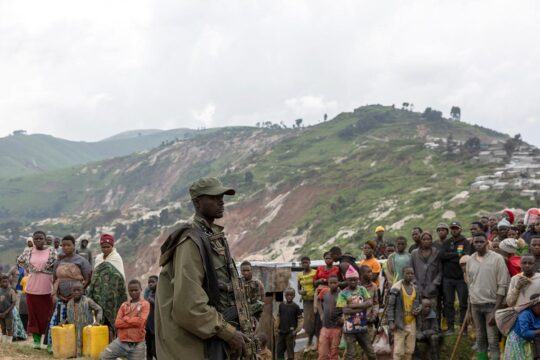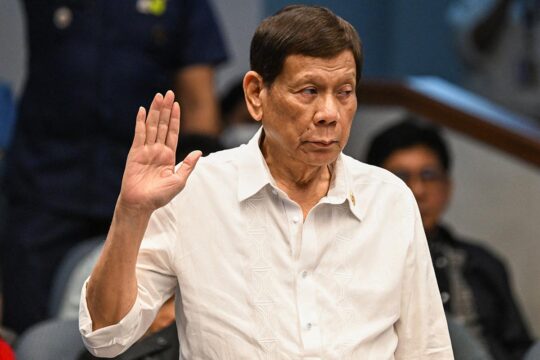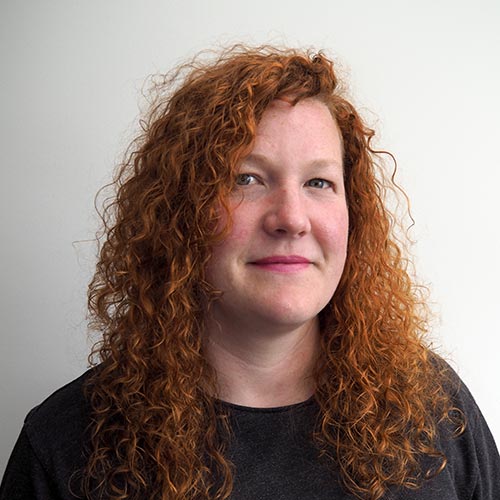On Thursday, September 21, Ukraine and Russia have wrapped up a first week of hearings at the International Court of Justice (ICJ) in The Hague over alleged violations of the Genocide Convention. Russia has objected to the court’s jurisdiction and a hearing on the merits, if the court moves forward, could happen next year at the earliest.
“Russia is waging war against my country in the name of this terrible lie that Ukraine is committing genocide against its own people,” Anton Korynevych, the Ukrainian ambassador to the Netherlands, said on Tuesday in his remarks to the ICJ. His arguments before the United Nations top judicial body leaned heavily on a now-infamous quote from Russian President Vladimir Putin. The day after launching, on February 24, 2022 what he called a “special military operation,” the Kremlin chief took to television explaining to the nation the invasion was necessary to save Russian-speaking people in Ukraine.
“Its goal is to protect people who have been subjected to bullying and genocide by the Kyiv regime for eight years,” Putin said, in reference to the conflict that opened-up in 2014. The Ukrainian legal team repeated those words multiple times in the muffled confines of the Hague Peace Palace. The country is not arguing, in these proceedings, that Russia is committing genocide in Ukraine. Instead, the Ukrainian legal team contends that Moscow violated the 1948 Genocide Convention when Putin claimed the Russian invasion was an effort to stop Ukraine from committing genocide. Since the justification for the war is illegal under international law, Kyiv wants the ICJ to order Russia to stop hostilities and pay reparations.
Prevention of a genocide or “national security”?
The day before, however, Russia argued that the purpose of the “military operation” was not the prevention of an alleged genocide by Kyiv, but rather “national security”.
“The justification is Article 51 of the Charter,” Russia's representative, Gennady Kuzmin, told the 16-judge panel on Monday, September 18. That section of the United Nations foundational treaty says the intergovernmental body will not do anything to “impair the inherent right of individual or collective self-defence if an armed attack occurs”, he underlined.
“No genocide has occurred”
Kuzmin and his team, on the other hand, want the judges to toss the entire complaint. They filed preliminary objections to the court’s jurisdiction [October 2022], arguing Ukraine has no grounds to bring the case. "Ukraine insists no genocide has occurred," Kuzmin said on Monday. “That alone should be enough to reject the case.”
In every previous case brought under the Genocide Convention at the ICJ, he said, one side was alleging that a genocide had occurred or was in process. For instance, in 2007 in the case of Bosnia and Herzegovina versus Serbia and Montenegro the judges held that Belgrade breached international law by failing to prevent the 1995 Srebrenica genocide, in which some 8,000 Muslim men and boys were killed by the Bosnian Serb forces during the Bosnian War.
“The use of force is regulated by the UN Charter and customary international law, not by the [Genocide] Convention," Alfredo Crosato Neumann, an attorney for Russia, also argued. Since, according to Russia, there are no grounds for military intervention in the Genocide Convention, it cannot be used as the basis for a case about an invasion at the ICJ.
Also, Moscow says Kyiv did not formally notify the Russian authorities that there was a dispute, as set out in the treaty, before it filed the case in The Hague. The lack of formal notice is enough to toss the matter, according to Russia. "Ukraine's legal position is hopelessly flawed and at odds with the long standing jurisprudence of this court", Kuzmin said.
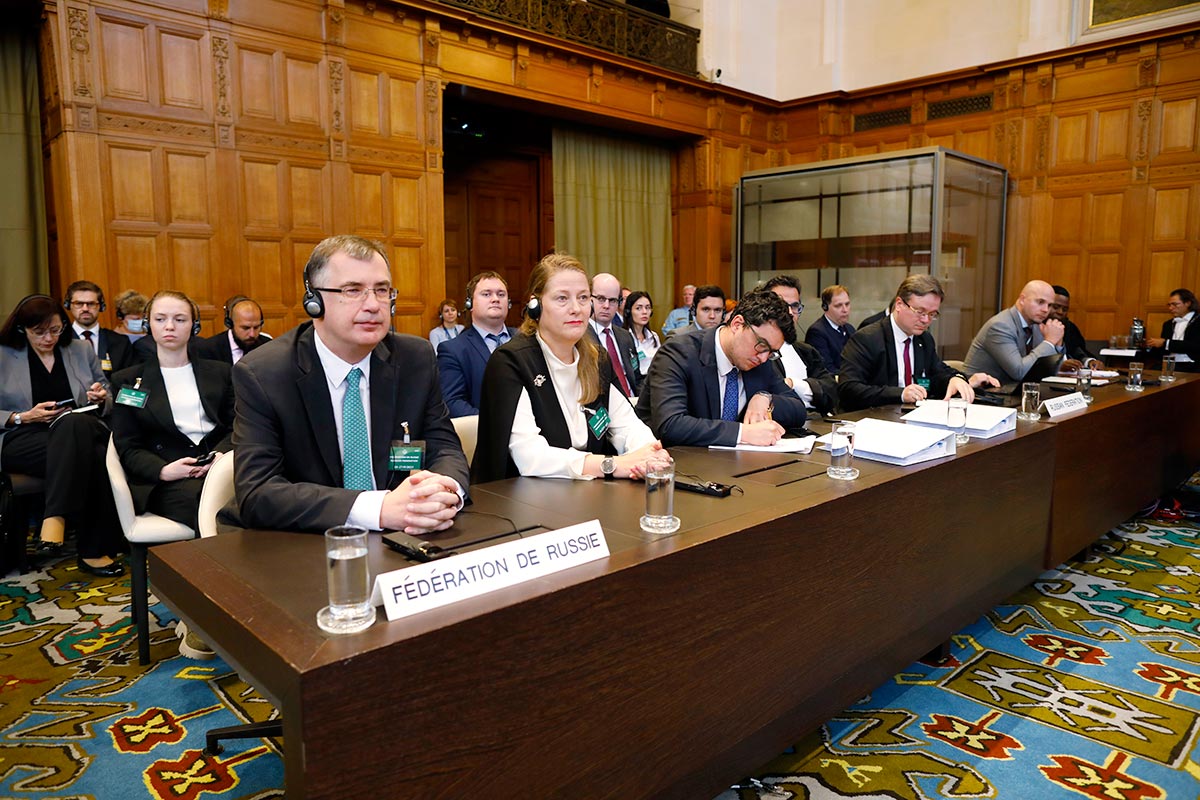
Unusual argument by Ukraine
Ukraine sees things differently. Its lawyers answer that the court has a broad range of powers regarding the 70-year-old treaty and that, despite what Russia’s lawyers say, the country’s leaders were using the pretext of a genocide to justify the invasion.
Ukraine filed the complaint with the court two days after the launch of the full-scale invasion in February 2022. "The international community adopted the Genocide Convention to protect. Russia invokes the Genocide Convention to destroy," Ukraine's agent Korynevych said.
"The court looks objectively at the facts. The court looks at, at the time of the application, if a dispute existed between the parties,” Marney Cheek argued on behalf of Ukraine. According to her, it was clear the parties had a dispute, as evidenced by the ongoing war.
Another lawyer for Ukraine, Harold Koh, argued that there is ample room in the Genocide Convention for the judges to rule, even if the argument Ukraine is making is unusual. The court “has discretion in the widest range of disputes,” he said.
Broad support
From the start, Ukraine saw a record-breaking level of support for its case. In all, 33 countries filed interventions with the court on behalf of Ukraine. In April, the court accepted all but one of them.
And this week, on Wednesday, every single European Union member state, with the exception of Hungary, plus Australia, Canada and even the micro-state of Liechtenstein participated in a full day of hearings.
Many countries cited their own history when explaining to the judges why they were supporting Ukraine. “Germany has an interest in upholding the Genocide Convention … not least in view of our own past,” Wiebke Rückert, a lawyer for Germany, said. The Convention, which marked the first time genocide was formally outlawed, was drafted in direct response to the horrors of the Second World War.
Many of the countries, given ten minutes each to speak, stressed the importance of the international legal order. “Today was an important day for the international rule of law,” UK lawyer Victoria Prentis told reporters after the hearing.
Expectations
In fact, judges at the court have already told Moscow to stop the invasion. In March 2022, the court granted a Ukranian request for preliminary measures. Judges ordered the Russian Federation to immediately suspend the military operations, and ensure its military units and any other unit or individual it has control over take steps not to further the conflict.
Ukrainian President Volodymyr Zelensky hailed that decision as a victory. “Ukraine gained a complete victory in its case against Russia at the International Court of Justice,” he said in a statement. "This is a victory for international law and for the Ukrainian people," Oksana Zolotaryova, of the Ukrainian Ministry of Foreign Affairs, told reporters from the steps of the Peace Palace [This was in response to the provisional measures ruling].
But on Thursday morning, Russia launched yet another large missile attack on Ukraine. Russian troops lobbed 43 cruise missiles on Ukrainian territory, damaging electrical infrastructure and injuring some 20 people.
And other decisions from the ICJ have also been ignored. The United Kingdom, which cited the importance of international law in its arguments this week, has continued to hang on to what has been called its “last colony” in direct violation of a 2019 ruling from the court ordering Lonond to return the Chagos islands to Mauritius.
Kyiv has other proceedings with Russia pending before the court, stemming from the start of hostilities in 2014. It has also brought complaints before the European Court of Human Rights, and Ukrainian leaders are calling for the establishment of a special tribunal to prosecute the crime of aggression. On its side, the International Criminal Court has launched its own investigation into the conflict, issuing an arrest warrant for Putin earlier this year.
"My message to Russia is this: let us settle our disputes like civilized nations. Lay down your arms and present your evidence," Korynevych told judges in an earlier hearing about the case.
